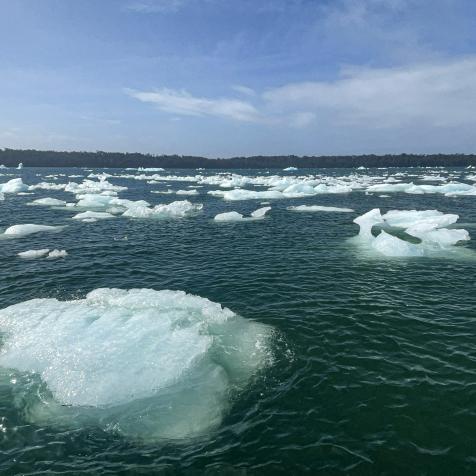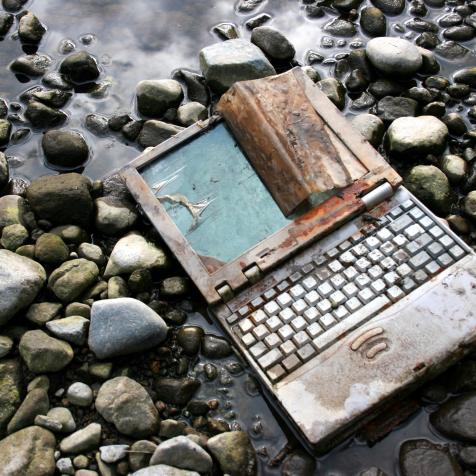
Getty Images
Gallium Is A Metal That Melts In Your Hands
Gallium will change your perception of metal.
When you think of metal, you most likely think of strength and toughness. Well, element gallium is here to change that perception.
Melts In Your Hands, Not On Your Table
The element gallium is an unexpected metal—it's a soft, silvery-white metal that is solid at room temperature (similar to aluminum) but it can literally melt in the palm of your hand. It's bizarre and a little unsettling to see, but it makes sense. The melting point for gallium (which is represented on the Periodic Table as Ga) is relatively low, at 85.6°F (29.8°C). However, the boiling point for this element is quite high, at 4044°F (2229°C). This quality makes gallium ideal for recording temperatures that would destroy a thermometer. According to the Los Alamos National Laboratory, gallium is "one of four metals — mercury, cesium, and rubidium — which can be liquid near room temperature and, thus, can be used in high-temperature thermometers. It has one of the longest liquid ranges of any metal and has a low vapor pressure even at high temperatures."
What Else Is It Good For?
Gallium is more than just a weirdo substance to poke at in the palm of your hand. As the Los Alamos National Laboratory explains, "Gallium wets glass or porcelain and forms a brilliant mirror when it is painted on glass. It is widely used in doping semiconductors and producing solid-state devices such as transistors. Magnesium gallate containing divalent impurities, such as Mn+2, is finding use in commercial ultraviolet-activated powder phosphors. Gallium arsenide is capable of converting electricity directly into coherent light. Gallium readily alloys with most metals, and has been used as a component in low-melting alloys."
This article first appeared on Curiosity.com.


















